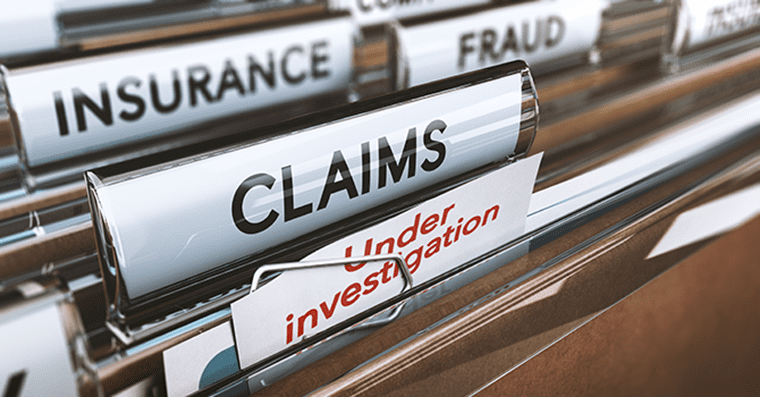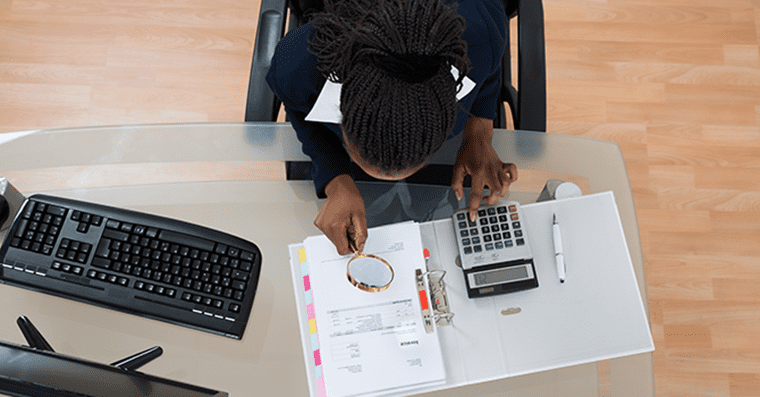Learn More About Fraud

Identity fraud, bank fraud, credit card fraud, and any other type of personal fraud is all very difficult to go through. You definitely have a variety of options if it happens, but it can still be upsetting to learn that you’ve been the victim of fraud. How does this fraud even happen? These are some of the most common methods.
Data Breaches
Unfortunately, you really don’t have any personal control over this one. Companies experience data breaches all the time, and some of those data breaches are significant. Even a company with very high security rankings can sometimes mess up. Certain data breaches are mostly harmless or only offer a potential for annoyance — if a company leaks your name and ZIP code, for example, it will probably only open you up to robocallers and telemarketers. But if a company accidentally leaks your Social Security number, address or credit information, it can easily lead to significant fraud.
Scammers
It’s much easier than you might think to fall for a scam. Most people don’t ever consider the concept of accidentally falling for one. However, just believing yourself to be savvier than the rest only increases your chances of actually falling for a scam. Sophisticated and experienced scammers utilize a huge variety of tactics, and one of those tactics may just get through your defenses. A scammer may steal your direct information like bank accounts and credit cards, or they may be after more intangible things like your personal identity information (PII).
Hackers
Most of the time, hacking happens when you accidentally download a virus or other malware onto your device. Whether that’s your computer, phone, tablet or some other device, a hacker can use installed software to glean your information in a variety of ways. It may be a browser extension that a hacker sneakily convinced you to download or additional malware hidden inside a genuinely helpful product. Either way, a hacker can then gain direct access to your information, even if you don’t give it out.
Self-Released Information
This tends to include your online presence. It can be tough to maintain your privacy across the internet as a whole, and that really shines through when it comes to the amount of personal information that you may accidentally leave on the internet. Whether that’s an address you shared a decade ago on a defunct social media site or a phone number you accidentally shared with the public on Facebook last week, it’s very important that you keep an eye on this information.
What Does Fraud Investigation Usually Look Like?
Once you discover that you’ve been the victim of identity fraud, credit card fraud or bank fraud, you’ll usually need to take a few different steps. These steps can be very annoying, cause lots of frustration for you, and eat up a lot of your time, but they’re generally the most important steps to take.
Talking to Your Bank
Obviously, this is most important if you’ve been the victim of bank fraud. But it’s also important if you’ve experienced fraud of some other kind that includes your personal information. Many people use personal information as a potential way to access your bank account if you forget the password (the name of your first pet, your mother’s maiden name, etc.). If an individual has that personal information, your bank account is suddenly vulnerable. As soon as you realize you’ve experienced a data breach of some kind, it’s usually a good idea to immediately get in contact with your bank and notify it of the situation.
Reporting Potential Fraud to Credit Companies
Credit card fraud especially can have a significant impact on your credit. If an individual opens a credit card or takes out a loan in your name, then you’ll technically be liable for that loan. More than likely, the individual won’t make any attempts to pay off the loan, and will instead just let the loan default. The thing is, this reflects on your credit rather than on the other person’s. As soon as you learn that you’ve experienced credit card fraud or identity fraud, talk to the credit bureaus from which you already get your information. You can place a “credit freeze” on your account that effectively disallows anyone from requesting a new line of credit in your name.
Taking Swift Action
The most important thing to do in the face of a fraud investigation is to move as quickly as possible. Obviously, this can be very frustrating and upsetting. If you have a very stressful schedule already, adding these worries on top of everything else can be difficult. But it’s important to remember that by taking action as quickly as possible, you’ll avoid lots of pain down the road. Go through all the necessary steps so you don’t have to do it later.
How Can I Use PeopleFinders to Perform My Own Fraud Investigation?

If you stay safe with PeopleFinders, it’s much less likely that you’ll have to perform a fraud investigation on your own at a later date. Instead of just hoping nothing happens, you can use PeopleFinders to try and keep yourself safe from identity theft every day.
Check Calls to Avoid Scams
The PeopleFinders reverse phone search gives you an easy way to avoid phone scams. Scammers tend to spoof phone numbers using a specific group of numbers that they bought out from a telecom company. This makes it easier to associate those specific numbers with the scammers that are currently using them.
As soon as you get a call from a number you don’t recognize, use PeopleFinders to perform a reverse phone search. That way, you’ll be able to know who’s calling you, and whether or not you can trust the person on the other end of the line.
Discover Whether Your Friends Are Safe
It’s unlikely that your existing friends would betray you by stealing your identity or personal information. However, it’s good to be skeptical of new friends before you offer up your information. With PeopleFinders, all you have to do is perform a background check on your new friends.
Check those friends for criminal charges involving identity fraud or other breaches of privacy. You can also look to see if a potential new friend has previously declared bankruptcy. Both of these things are important red flags. Although criminal charges are often worse than bankruptcy, a bankruptcy filing can clue you in to the fact that they are not very good at managing money. In that case, you may decide not to lend this person money or go into business together.
Keep an Eye on Your Personal Information
At all times, it’s important for you to stay conscious of your personal information and where it’s currently available. That includes places where it’s legally available, as well; you want to make sure you know what apps, banks, and social media sites potentially have access to your personal information. The thing is, you’ve probably forgotten about at least some of it. But in order to effectively maintain a safe personal life on the internet, you need to make sure you know where all of your personal information currently resides.
If you perform a people search on yourself, you can start learning more about what type of information you may have accidentally let slip throughout your existence on the internet. Plus, you’ll get other important information about yourself and your family that you can then use. Overall, the people search isn’t just helpful for the people you know. It’s helpful to keep track of your own personal information as well, so you don’t succumb to identity theft.
Frequently Asked Questions
How can I do fraud investigations on peoplefinders.com?
On PeopleFinders, you can conduct informal fraud investigations by checking your own information for irregularities, or check the information of others to verify their identities.
Can I do fraud investigations for free on peoplefinders.com?
Afraid not. We charge you to access our data to recoup the costs we incur in the ongoing collection, updating and organizing of it.
How do I conduct a fraud investigation?
Unless you are a professional fraud investigator, the amount of investigating you can do to prove a scam is somewhat minimal. But you can keep an eye on your and others' information, and alert officials if you notice something suspicious.
How do I investigate fraud?
You know your habits and what your public information looks like. By monitoring that information, and noting any changes or irregularities, you can minimize the effects of any scams/fraud.
How does a fraud investigation work?
For an official fraud investigation, an investigator gathers evidence of a scam perpetrated on one or many people, hopefully with the result of stopping and punishing the scammer and reversing the damages.
How long can a fraud investigation take?
It depends. But in most cases of suspected financial fraud, banks and credit card companies have up to 90 days to complete a fraud investigation.
What agencies investigate consumer frauds?
The Federal Trade Commission (FTC) is the primary government entity responsible for protecting American consumers from fraud. They notify law enforcement agencies like the FBI, the Bureau of Consumer Protection, the DOJ Consumer Protection Branch, and others to pursue fraud complaints.